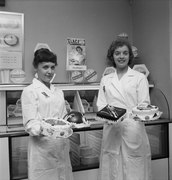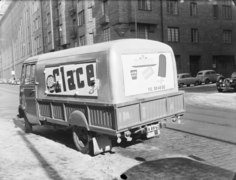
Magnum is a brand of ice cream and the company's namesake, originally developed and produced by Frisko in Aarhus, Denmark, a part of the British company Unilever. It is sold as part of the Heartbrand line of products, which is owned by Unilever in most countries and is available in sticks, tubs and bites. In Greece, the Magnum brand name has been owned by Nestlé since 2005–2006 following the acquisition of Delta Ice Cream, so the Unilever ice cream uses the name Magic.

Orkla ASA is a Norwegian conglomerate operating in the Nordic region, Eastern Europe, Asia and the US. At present, Orkla operates in the branded consumer goods, aluminium solutions and financial investment sectors. Orkla ASA is listed on the Oslo Stock Exchange and its head office is in Oslo, Norway. As of 31 December 2021, Orkla had 21,423 employees. The Group's turnover in 2021 totalled NOK 50.4 billion.

Selecta is a Filipino dairy products brand owned by RFM Corporation. Its milk business is operated by RFM Corporation, while its ice cream business is operated under a joint-venture with Unilever Philippines, Inc., and serves as the Philippine branch of Unilever's Heartbrand line of ice cream.
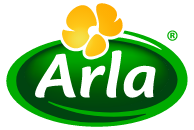
Arla Foods Ltd is a major dairy products company in the United Kingdom, based in Leeds, and a subsidiary of the Arla Foods Group, which is owned by its farmer owners in seven countries including the UK.

Wall's is an ice cream and frozen dessert brand in the United Kingdom owned by Unilever and is part of the Heartbrand global frozen dessert brand.
Arla Oy is one of the largest food manufacturers in Finland, holding a leading position in the dairy sector in Finland. It is a subsidiary of Danish-Swedish company Arla Foods.
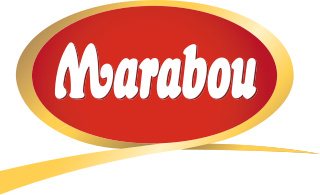
Marabou is a Swedish chocolate brand owned by Mondelez International.

Viennetta is a British brand of ice cream dessert made by Unilever and sold under the various Heartbrand brands around the world. The original Viennetta consists of several rippled layers of ice cream separated by thin layers of sprayed-on compound chocolate. It is now available in many flavours, including vanilla and mint.

Strauss Group Ltd., formerly known as Strauss-Elite, is an Israeli manufacturer and marketer of consumer foods sold through retail stores. It is among the largest food manufacturers in Israel. Strauss Group focuses on dairy products, coffee, water, snacks, salads, and dips. Its subsidiary Strauss Coffee is a leading coffee company in Eastern Europe and Brazil. Strauss Group is a public company traded in the Tel Aviv Stock Exchange, with the majority of its shares (57%) being owned by the Strauss family.

Streets is an Australian ice-cream brand bought by the British multinational company Unilever in 1960. Some products are made in China and shipped to Australia and New Zealand. It is part of Unilever's ice cream brand Heartbrand. The company is in a long-term contract with dairy company Dairy Farmers.

Pucko is a classic Swedish drink made from milk, sugar and chocolate. It is currently manufactured by Cocio in Denmark.
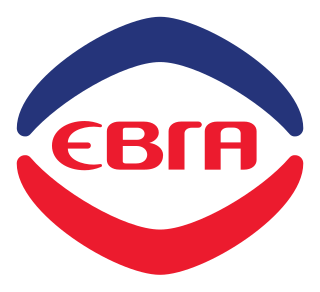
Evga S.A. is a Greek dairy product producer, with headquarters in the center of Athens, founded in 1934. The company produces ice cream, juices, croissants and frozen pastry products. EVGA exports to Europe and the United States, and produces products for third-party companies.

Diplom-Is AS is a Norwegian manufacturer of ice cream owned by the dairy group Tine. In 2005, the company produced 51,100,000 litres of ice cream, and held a market share of 53% domestically.
Inmarko OOO is a Russian producer of ice cream and frozen foods based in Novosibirsk. Currently owned by Unilever, it has factories in Novosibirsk, Omsk, and Tula and had over 4,500 employees in 2008. It was sold to Unilever in 2008 and ceased to exist as a separate company in 2012.

Unilever Gloucester is a large food manufacturing site in the north-east of Gloucester, England, that produces all of the makes of Unilever ice cream for the UK.
Pingviini is a Finnish brand of ice cream owned by Fronen Finland. Known for its logo featuring a penguin, Pingviini brand ice cream has been sold in Finland since the 1930s.

Nogger is a brand of ice lolly made by Langnese. It was first introduced in West Germany in 1964, making it one of the oldest ice cream brands of Unilever.

